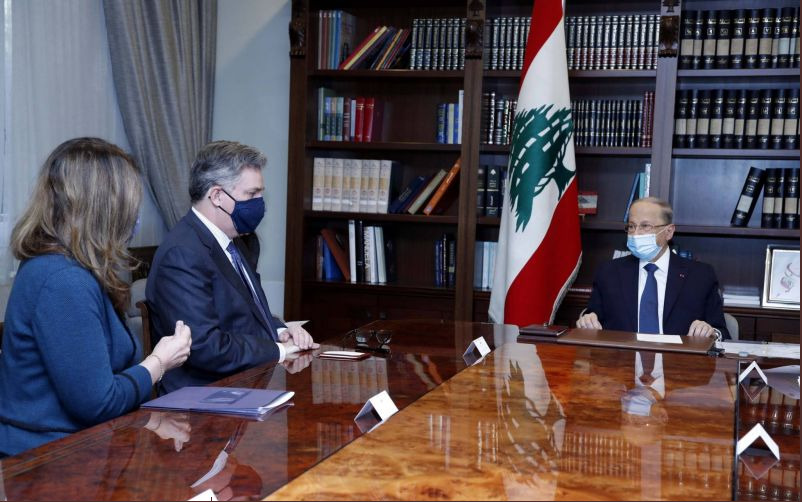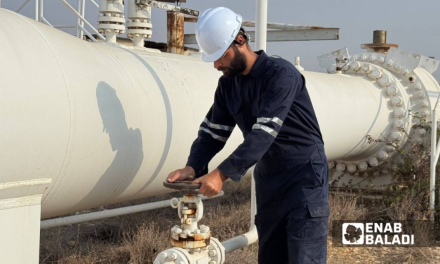Lebanese President Michel Aoun met at Baabda Palace on Monday June 14, 2021 with John Desrocher, the head of the US delegation sponsoring the indirect maritime demarcation talks between Lebanon and Israel, the National News Agency reported on Monday.
The discussions focused on the latest developments related to the negotiation talks after a weeks-long halt.
The negotiations first began last in October and stopped a few weeks later. They were the first non-security talks between Lebanon and Israel, which have no diplomatic relations and are technically in a state of war.
Israel and Lebanon each claim about 860 square kilometers (330 square miles) of the Mediterranean Sea. But in the second round of talks, the Lebanese delegation — a mix of army officers and experts — offered a new map that pushes for an additional 1,430 square kilometers (550 square miles) for Lebanon.
The maritime boundary remains an area of contention; Lebanon and Israel agreed to return to the negotiating table under the US mediation. That process came to an abrupt halt in mid-April when Lebanon changed its negotiating position for a better positioning. Claiming “Lebanon is within its rights to evolve its position,” President Michel Aoun demanded that Israel immediately cease all of its natural gas development in the “Karish” field, and claimed for Lebanon an additional 1,430 square kilometers of maritime territory over and above the original 860 square kilometers that were the subject of negotiation; later on, President Aoun stated that the negotiations should go on with no preconditions and that Lebanon should retain the original claim to 860 square kilometers.
The U.S. team is led by Desrocher.
The U.S. has been mediating the issue for about a decade, but only late last year was a breakthrough reached on an agreement for a framework for U.S.-mediated talks. The talks began in October but stopped a few weeks later and many followers are expecting for a positive results during the next rounds of the negotiations.
The previous rounds of the U.S-mediated talks, hosted by the U.N., took place at a border post. Israel’s Energy Minister Yuval Steinitz is leading the negotiations for the Israeli side.
Israel has already developed offshore natural gas rigs, producing enough for domestic consumption and export abroad. Officials in Lebanon, which is going through its worst economic crisis, hope its own oil and gas discoveries will help alleviate its troubles.







